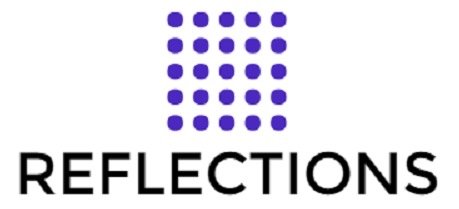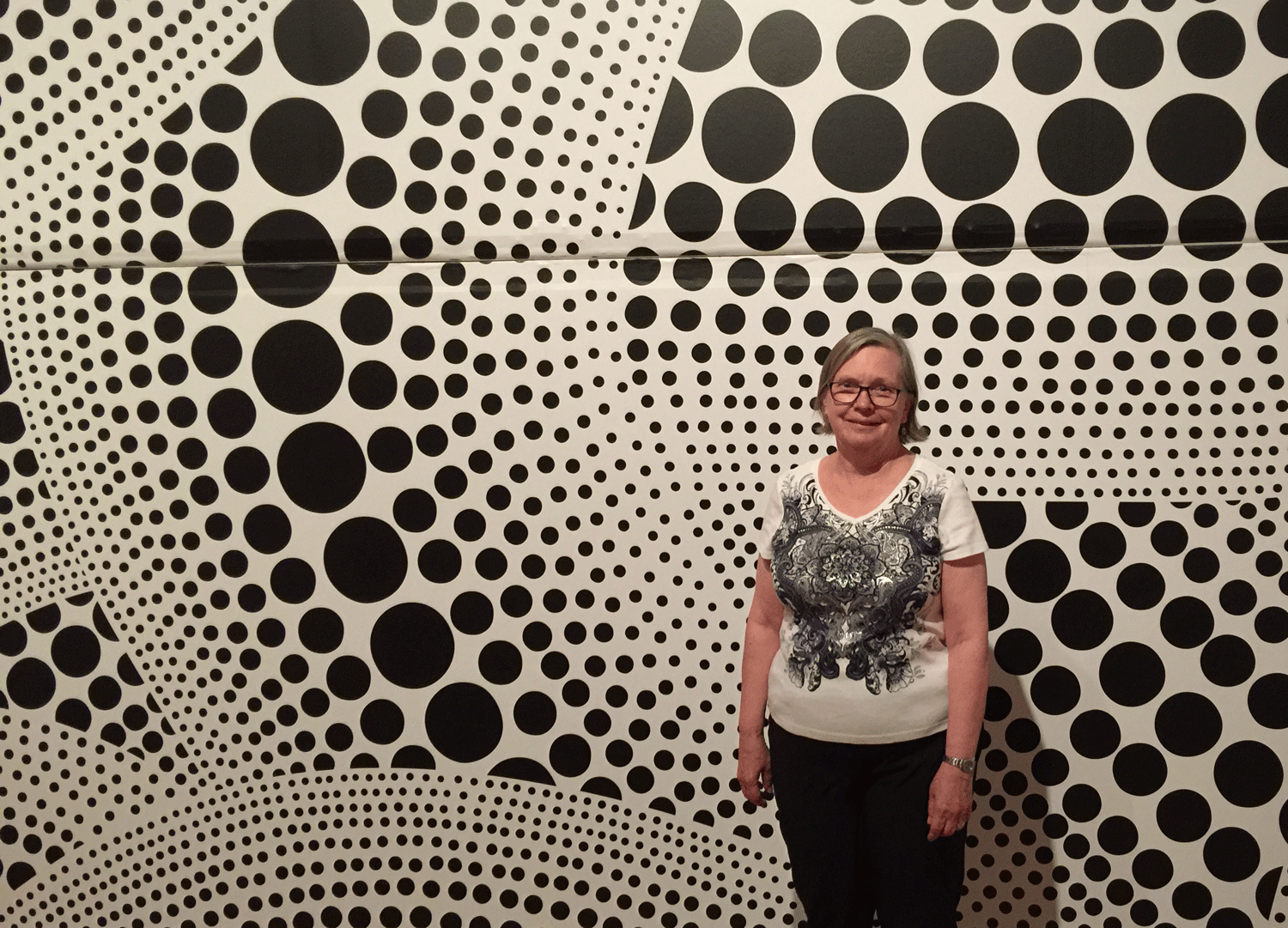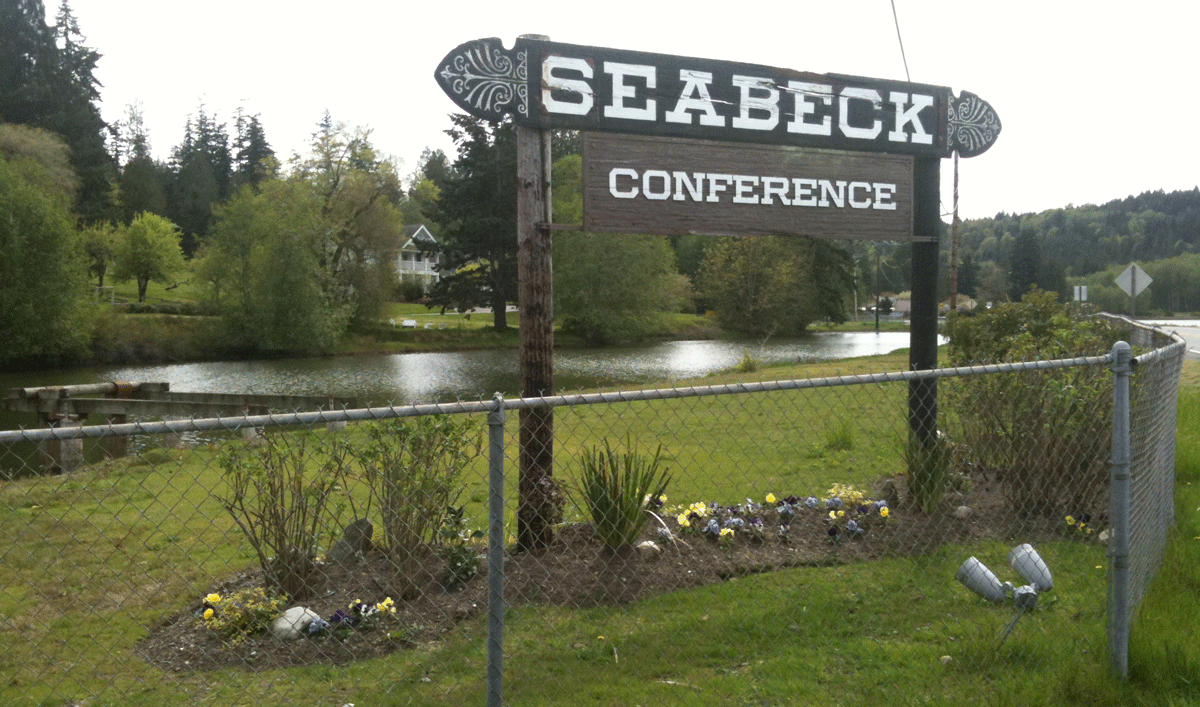Puzzles Solve a Puzzle
Yayoi Kusama exhibit at Seattle Art Museum - 2017.
When I was little I loved puzzles and math games. I subscribed to Highlights Magazine and the puzzles were one of my favorite activities. I was also a good test-taker, especially when the test was multiple choice. I enjoyed challenges that required creative thinking and problem-solving. However, I struggled with certain school and career tasks later in life. Why?
In most ways school was easy for me and schools responded by giving me extra assignments and opportunities, such as cashier in the cafeteria, office substitute when the school secretary took a break, special advanced tests in reasoning and math, and honors classes with other “smart” kids. The high school counselor even requested my parents come in for an appointment to impress upon them how highly capable I was and that they should be encouraging me to attend the best college possible.
One classmate responded to my accomplishments by writing in my annual that she thought I’d be the first woman president. Another friend, however, observed something else. She said I was an intellectual snob. While there were many things I could do very well, other aspects of life were a challenge, and I did not understand why.
Even while getting good grades and becoming one of five class Valedictorians, there were things I struggled with. There were puzzles in the midst of my achievements:
1. I loved music, but dropped out of chorus, and my attempts to play piano, violin and guitar were unsuccessful. I loved to sing but struggled to remember the words to songs, the melodies and names of performers.
2. I enjoyed many board games, but not bridge, Clue, poker or any memory game.
3. I thought I’d enjoy debate class but dropped out after a few days. I became terrified of forgetting my lines when I was given a small part in a class play.
4. When given an assignment to write a poem or words to a song, I froze, just couldn’t do it.
5. Coming out of college and law school with honors, I was fired from my first law firm job.
6. As a judge, I ranked as one of the worst judges in the county in a poll of local attorneys, despite, in my opinion, being one of the most hard-working and ethical judges in our court system.
7. In school and in life, I struggled to remember details such as names, dates, case names, titles of publications, and code sections of the law.
8. I had a high level of interest in languages and studied Spanish, French and German, but ultimately realized I did not have a high aptitude in this area.
For most of my adult life, I did not even attempt to do puzzles. I thought I was too busy and had more important things to do. In retirement, my attitude changed and I’ve tried a variety of puzzles. The transformation began while attending an event at Seabeck Conference Center. During a period of extended free time, I was looking for something to do and also wanting to get better acquainted with some of the other campers. Another woman in the lounge area was doing a Sudoku puzzle and encouraged me to give it a try. With nothing else to do at the time, and valuing the interaction with another camper, I listened to her explanation of how to solve the puzzle, gave it a try, and have been solving Sudoku puzzles ever since.
Initially, I looked at my Sudoku puzzles as a way to relax, to procrastinate or to pass the time in an airport or on the plane. Recently, however, I’ve looked at puzzles as a way to understand myself, to exercise my mind and to gain insights into life.
Here’s what I discovered:
1. There’s a reason why I have zero interest in crosswords and other puzzles which require knowledge of facts. I have trouble remembering names, dates, and titles, so attempting a crossword is an exercise in frustration. As an “intellectual snob” I have also missed out on many experiences of popular culture, making it impossible to name certain popular performers, songs or tv shows.
2. As I gain more experience with Sudoku puzzles, I can solve them more quickly. There are no FACTS involved, just simple reasoning and strategies. Completing a challenging puzzle reassures me that my brain is working and that, even in retirement, I can learn new skills. The puzzles also remind me of certain principles of life:
a. Haste makes waste.
b. Stress and lack of sleep increase the chance of errors.
c. It’s easier to do something correctly the first time, rather than being careless and having to find and fix an error.
d. When one strategy doesn’t work, try a different approach.
e. Sometimes a small, simple success will lead to many other successes.
f. Our eyes can trick us, especially when we are tired. A solution or an error may be in plain sight, but still overlooked.
3. There are other types of puzzles I do occasionally, when needing to occupy my time, but only if they primarily involve logic and observation, rather than facts, memory or calculations.
What‘s the solution to the puzzle of my life?
1. School, life, and puzzles require cognitive skills – brain functions. Studies about the brain report that each individual will perform at different levels in each skill area, even scoring very high in one area and relatively low in others.
2. While I’ve always done well in what’s sometimes called “Visual and Spatial Process” and many “Executive Functions”, there are other areas in which I struggle.
3. There’s a human tendency to think too much about areas where we feel deficient and to ignore our strengths, when we should do the opposite.
4. “Do what you love” is a good slogan for life, but it will lead to greater success if it is combined with a recognition of the type of activities that one is likely to do well.
5. The puzzle of life is solved by appreciating one’s skills and strengths, organizing one’s life as much as possible to make use of those strengths and developing strategies to minimize the problems caused by the areas of lesser skill.
We are each valuable individuals with a mixed bag of skills. Let’s encourage one another to make the best of our strengths and to learn to manage our weaknesses, enjoying puzzles as a way to gain insight into life.
Note: I love to have new subscribers to my blog. Subscribe here.


